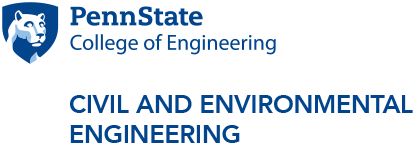Channel-Bed Erosion in River Systems and Mitigation Measures
Elli Papangelakis
Abstract
Rapid bed erosion is an endemic problem in urban rivers driven by an increase in flood frequency and magnitude combined with a reduction in sediment supply characteristic of highly impervious watersheds. The glacial material underlying rivers in the Toronto area (Canada) make them especially sensitive to bed erosion. As alluvium is evacuated from the channels through bed erosion, the highly erodible glacial material is exposed, leading to accelerated bed lowering, rapid channel change, and avulsions that are challenging to mitigate effectively. This talk will explore experiments into using artificial gravel augmentation as a strategy to replenish the natural sediment supply and mitigate rapid bed erosion as an alternative to bed hardening. The effects of sediment supply rate and channel geometry on the formation of a protective gravel layer are explored. Results show promise for a novel approach to urban river management to mitigate bed erosion and replenish a natural sediment cover.
Bio
Dr. Elli Papangelakis is a fluvial geomorphologist and assistant professor in the School of Earth, Environment and Society at McMaster University in Hamilton, Canada. She has a diverse educational background with bachelor’s degrees in both physics and geography from the University of Toronto, a masters in geography from the University of British Columbia, and a PhD in Civil Engineering from the University of Waterloo. Dr. Papangelakis brings elements from these diverse perspectives to her research on the geomorphic and sediment transport processes of urban rivers. She has particular interest in exploring novel strategies to improve river restoration practices and guide watershed management efforts
Astrid Blom
Abstract
Engineered rivers are often prone to channel bed incision. Such channel incision decreases the channel-floodplain connection, hampers navigation where nonerodible reaches increasingly protrude from the bed, and can destabilize structures. Here we inventorize causes and characteristics of channel incision. We elaborate on how channel bed incision is a transient channel of response toward a new equilibrium channel state. Causes of incision comprise base level fall, channel narrowing (e.g., due to river training), channel shortening (bend cut-offs), an increased channel-forming discharge (e.g. due to climate change), and a decrease (or fining or coarsening) of the sediment flux from the upstream part of the basin. Finally, we discuss two measures that may mitigate channel bed incision: sediment nourishments and longitudinal training walls.
Bio
Dr. Astrid Blom is an associate professor in the Department of Hydraulic Engineering of the Faculty of Civil Engineering and Geosciences of Delft University of Technology (TU Delft). In her research, she focuses on changes in engineered river systems. In particular, she asks how anthropogenic modification and natural change affect the river equilibrium state regarding channel slope and bed surface grain size, as well as how the river responds with time to such change. She loves to develop conceptual and analytical models as tools to increase insight into the physics governing modern and/or historic river problems. She combines these models with analyses of field and lab data, and numerical modeling to extend physical understanding to engineering applications. She is motivated to increase diversity in engineering and science, and loves to work with and educate young researchers.
Additional Information:
Event Contact: Li Li



